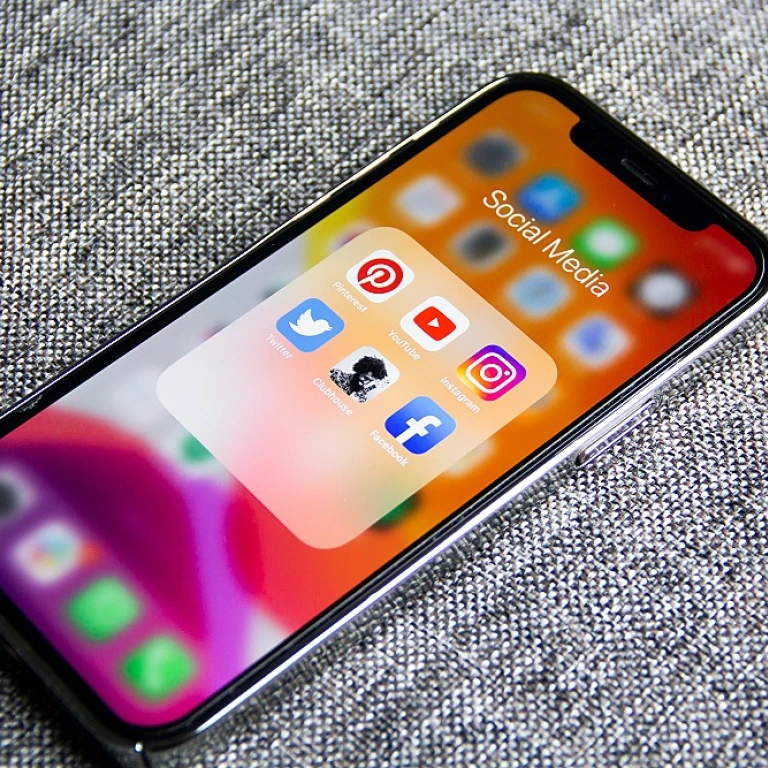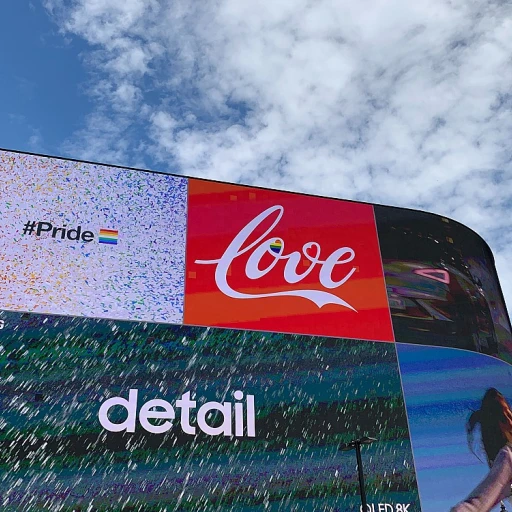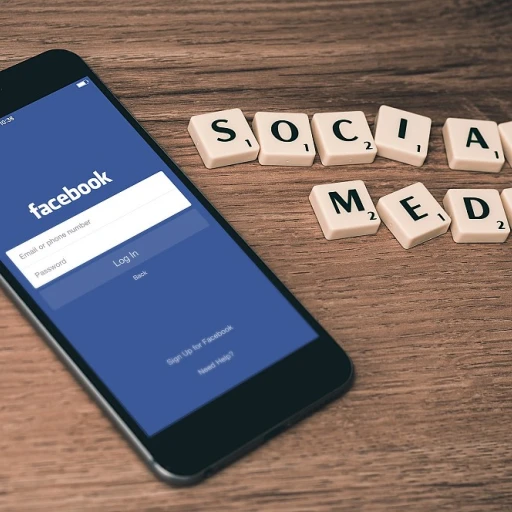
The Basics of Facebook Ad Reach
Grasping the Core of Facebook Ad Reach
Understanding Facebook ad reach is crucial for any business aiming to leverage social media marketing. At its core, Facebook ad reach refers to the number of unique people who see your ads on the platform. This metric is vital because it directly influences the effectiveness of your advertising campaigns, including your budget allocation and conversion rates.
When you launch a Facebook advertising campaign, your primary goal is often to reach as many potential customers as possible. However, achieving a high reach is not just about throwing money at your ads. It's about strategically targeting your audience, crafting compelling content, and understanding the nuances of the Facebook algorithm. The algorithm plays a significant role in determining how your ads are distributed across users' news feeds, impacting both paid and organic reach.
Facebook's relevance score is another critical factor. This score evaluates the quality and engagement level of your ads, affecting how often your ads are shown to your target audience. A high relevance score can lead to better reach and lower costs, while a low score might result in your ads being shown less frequently, thereby reducing your reach.
For businesses, understanding these dynamics is essential to optimize their marketing efforts. By focusing on creating high-quality content and understanding the factors that influence reach, businesses can improve their Facebook advertising strategies. To delve deeper into how social media platforms like Facebook impact your advertising reach, you might find this resource insightful.
Factors Affecting Facebook Ad Reach
Key Determinants of Facebook Ad Performance
Understanding the intricacies of Facebook ad reach requires unraveling several crucial factors that play a pivotal role in determining how your ads perform and connect with your target audience. The aim is to optimize these factors to maximize the effectiveness of your campaigns and ensure your advertising efforts yield the best results.
Audience Definition and Targeting Tactics
One of the fundamental elements influencing Facebook ad reach is how well-defined and accurately targeted your audience is. With the platform's extensive data capabilities, businesses can segment their target audience based on demographics, interests, and behaviors. Crafting a precise target audience ensures that your ads will engage people who are more likely to respond positively, thereby enhancing reach and conversion.
Impact of Budget Allocation
Your advertising budget significantly affects your ad campaigns' reach. A well-thought-out strategy involves allocating a budget that aligns with campaign goals and audience size. Regularly monitoring and adjusting your budget helps maintain a steady flow of reach, ensuring your ads remain visible to the intended audience throughout the campaign duration.
Content Quality and Engagement
The content within your ads holds immense power in attracting and retaining audience attention. High-quality visuals combined with engaging, well-written content are essential ingredients for achieving broader reach. Facebook’s algorithm prioritizes ads that generate more interactions, reflecting them in users’ news feeds more organically.
Role of Facebook’s Algorithm
Facebook’s algorithm plays a crucial part in determining your ad's reach. It assesses factors such as relevance score, engagement rate, and the estimated action rate to decide when and where to display ads. Gaining a higher relevance score not only improves the potential for greater reach impressions but also can reduce costs, making your advertising efforts more efficient.
Timing and Frequency
Effective campaign timing and frequency management ensure that ads reach people at the most opportune moments. It’s important not to oversaturate the audience with ads, as it may lead to ad fatigue. Instead, scheduling ads at strategic times increases the chances of reaching your target audience when they are most active, maximizing the impact of your advertising strategy.
To further delve into optimizing reach with protective measures for data privacy, consider exploring the insights shared in this comprehensive guide on safeguarding cyberspace.
Role of Artificial Intelligence in SEO
Artificial Intelligence Transforming SEO Strategies
Artificial Intelligence (AI) is revolutionizing the landscape of Search Engine Optimization (SEO) by refining how facebook ads engage with their target audience. It’s not just about low reach or boosting facebook will for organic growth. Through advanced data analytics and algorithms, artificial intelligence enhances both the strategic planning and execution of facebook advertising campaigns, ultimately aiming to penetrate a wider audience and improve conversion rates. AI plays a critical role in discerning the vast amount of data involved in facebook reach and social media marketing. It enables more precise targeting by analyzing user behavior patterns. This analysis helps businesses tailor their ads to audience preferences and increase relevance score, thereby maximizing the chances to reach people efficiently.Enhancing Relevance and Targeting
One of the primary ways AI contributes to SEO is by enhancing the relevance of facebook ads to their intended audience. By leveraging AI, businesses can refine their advertising campaigns, targeting individuals with greater precision based on their interaction history, browsing patterns, and even interests as inferred from social media activity. This ensures ads are more likely to appear in the news feed of those most likely to engage, thereby optimizing reach impressions and ultimately leading to better campaign performance.Optimizing Budget and Conversion Rates
AI-driven SEO strategies facilitate greater efficiency in budget allocation for facebook advertising. By predicting which ads are likely to have the highest conversion potential, businesses can better allocate their resources, preventing budget waste on low-performing campaigns. This precision in budget management is key to improving website conversion outcomes and ensuring each dollar spent contributes effectively to the business’s end goals.Time-Saving and Effective Advertising
Implementing AI reduces the time required to manage and optimize campaigns. AI tools can automate routine tasks such as ad testing and analytics, allowing marketers more time to focus on creating compelling content that resonates with their audience, increasing the potential for viral reach. With data-driven insights rendered by AI, marketers can swiftly adapt campaign strategies to accommodate changes in customer behavior or facebook algorithm adjustments, ensuring optimal facebook reach. In conclusion, AI is not merely an aide to traditional SEO strategies but a transformative force that, when utilized effectively, can significantly enhance facebook advertising efforts by improving campaign efficiency and targeting precision. As AI technologies continue to evolve, their integration into SEO practices will further redefine how businesses engage their audience through targeted ads. For more insights on overcoming challenges and implementing these strategies, consider exploring this resource on transforming adversity in business environments.AI-Driven Strategies to Enhance Ad Reach
Maximizing Ad Reach through AI Strategies
Implementing AI in search engine optimization has proven beneficial for enhancing Facebook ad reach. AI enables businesses to fine-tune their campaigns, resulting in better audience targeting and more effective use of advertising budgets. One of the primary strategies involves using AI to analyze vast amounts of data quickly. This assists marketers in understanding the preferences and behaviors of their target audience, allowing them to tailor content and ads more effectively. By analyzing user engagement with previous ads, AI can predict which types of content will resonate with potential customers, optimizing future campaigns for higher conversion rates. AI also helps in segmenting audiences based on various factors such as demographics, interests, and online behavior. This segmentation ensures that ads are shown to the most relevant people, thereby increasing the likelihood of engagement and reducing instances of low reach. Moreover, AI's contribution to dynamic content generation enables businesses to create multiple ad variations automatically. As these ads are tested over time, AI can identify which versions are performing best, allowing marketers to focus their budget on the highest-performing ads and improve overall campaign effectiveness. Additionally, AI-driven automation tools can optimize ad scheduling by determining peak times for audience engagement, ensuring that ads hit the news feed when users are most active. This precision in timing increases the chances of engagement and expands the reach of Facebook ads. While leveraging AI brings significant advantages in maximizing Facebook ad reach, it is not without challenges. Balancing between AI-driven automation and human oversight is essential to maintain control over ad strategies and ensure they align with broader marketing goals.Challenges in Implementing AI for SEO
Overcoming Barriers in AI Application
Incorporating artificial intelligence into search engine optimization poses several challenges. One primary hurdle is data quality. AI algorithms rely heavily on vast amounts of high-quality data to function effectively. In the realm of Facebook ads, the algorithm requires accurate audience data to optimize ad reach, targeting the right people at the right time. However, obtaining precise data can be challenging due to privacy concerns and data restrictions.
Moreover, implementing AI-driven solutions demands a certain level of expertise and budget allocation, which might be difficult for businesses with limited resources. Maintaining the balance between budget constraints and efficient Facebook advertising requires strategic thinking and often necessitates a clear understanding of both the Facebook algorithm and SEO principles.
Technical and Ethical Complexities
Technical obstacles also emerge in configuring AI systems to suit specific business needs. From integrating AI with existing marketing campaigns to making use of AI for optimizing Facebook reach, complexities naturally arise. Companies must ensure their AI tools and techniques align with their wider business strategies, which can often be a tough task.
On the ethical front, organizations need to navigate issues like data privacy and transparency, especially when AI tools are employed to boost organic reach and conversions. The rise in AI adoption calls for robust policies and frameworks to ensure data is used ethically and in compliance with regulations. Businesses must always prioritize trustworthiness when implementing AI-driven strategies.
Despite these challenges, investing the time and resources into overcoming these barriers can result in increased relevance scores, effective target audience engagement, and ultimately, higher conversion rates for their advertising content. Staying informed about the latest trends in social media and AI technology can empower businesses to enhance their low organic reach and overall SEO performance in a competitive landscape.
Future Trends in AI and SEO
Anticipating AI Innovations in SEO
As we look towards the future, AI continues to reshape the landscape of search engine optimization with promising advancements. Businesses and marketers eager to enhance their Facebook ad reach and Google Ads campaigns may need to brace themselves for changes that AI-driven strategies will bring. In the ever-evolving world of digital marketing, AI's ability to analyze vast amounts of data quickly and accurately will play a crucial role. This includes identifying trends and patterns within social media interactions and optimizing content accordingly. Machines will better understand the nuances of audience behaviors on platforms like Facebook, thereby informing more precise targeting in campaigns and potentially leading to higher conversion rates.- Enhanced Personalization: AI engines will likely develop heightened capabilities to tailor advertising content for individual users based on their browsing history and engagement with previous ads. Prediction models using Facebook’s algorithm could result in superior relevance scores, achieving significant improvements in both reach impressions and conversion campaigns.
- Automated Optimization: The automation of mundane tasks will continue to simplify how marketers manage large-scale campaigns. Through real-time adjustments, AI can ensure budget efficiency and maximize reach even in cases where organic reach might be low.
- Advanced Audience Insights: Deeper audience analysis driven by AI will grant businesses a more nuanced understanding of their target audience. This includes predicting the potential performance of ads and adjusting strategies to meet evolving consumer interests, ultimately influencing the organic reach and the effectiveness of Facebook advertising efforts.













